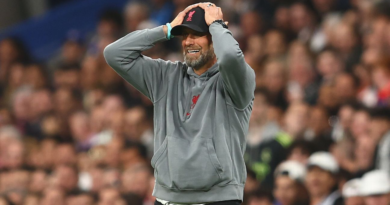Senators propose latest federal NIL framework
A bipartisan trio of U.S. senators shared a draft Thursday morning of legislation that aims to create a uniform national law for how college athletes can make money and push many schools to provide more health care benefits for athletes.
The draft is one of at least three potential bills that have been floated on Capitol Hill this summer as the NCAA and leaders across college sports continue to ask Congress to help regulate how athletes can make money from their names, images and likenesses. This proposal — co-authored by Sens. Cory Booker, Jerry Moran and Richard Blumenthal — goes beyond NIL regulation by suggesting that NCAA schools should be required to be more transparent about their finances and set aside funds for post-career medical expenses and long-term guaranteed scholarships for athletes.
“It would make college athletics fairer, safer, and more just, and empower more young people to succeed in sports and beyond,” Booker said in a statement.
Federal lawmakers have proposed more than a dozen bills to reform college sports in the past three years, but thus far none has made it beyond the first step in the legislative process. Leaders from the NCAA, its most powerful conferences and many of its schools have traveled to Washington this summer to try to convince Congress to act. They say that the current lack of a nationwide standard has created a “race to the bottom” among state legislatures that are passing laws designed to try to give teams in their state a competitive advantage in recruiting.
“Congressional action is the only way to provide a national uniform standard for name, image, and likeness activity and to draw the lines around the boundaries that do not become simply pay for play,” SEC commissioner Greg Sankey said earlier this week.
Leaders such as Sankey say they would like a law that creates uniform NIL rules, provides a narrow antitrust exemption to protect schools from some types of litigation and declares that college athletes should not be deemed employees of their schools.
This most recent draft does not include any antitrust exemption, nor does it weigh in on the employee status of athletes — an issue currently being debated in multiple legal venues. It stops short of some of the more aggressive economic reforms that NCAA leaders have opposed and Democrats have pushed in previous NCAA-related legislation. The proposed bill also does not address revenue sharing with athletes, an item Booker and Blumenthal included in a previous bill proposal in 2020.
This time around, the senators propose creating a non-government-operated corporation with the power to settle NIL disputes, certify agents and enforce other reforms, which include:
Health care: Establish a medical trust fund for sports-related injuries. Athletic departments that generate at least $20 million annually would be required to cover out-of-pocket medical expenses for athletes for two years after they finish playing. Athletic departments that generate at least $50 million annually would have to do the same for four years and provide athletics-related health care coverage while athletes were playing.
Draft eligibility: All college athletes can enter drafts for professional leagues without losing their NCAA eligibility if they decide to return to school within seven days of the draft ending.
Scholarship guarantees: Colleges would have to guarantee that athletes would keep their scholarships until they finish their undergraduate degrees as long as they remain in good academic standing and do not transfer.
Education: Schools could not attempt to discourage athletes from choosing particular academic majors. They would also be required to provide athletes with at least 15 hours per year of financial literacy and life skills training that could count as college credits.
Transparency: Schools would be required to report annually on their athletics revenue and expenses, how much money their coaches make, how much time athletes spent on their sports, academic outcomes, and the average value and total number of endorsement contracts athletes sign. The bill would make sure that specific contract details for endorsement deals were not made public or subject to public records requests.
The new corporation, dubbed the College Athletic Corporation, would work with existing associations like the NCAA to police certain areas of college sports. This group would be granted subpoena power to monitor whether all parties were obeying the framework established in the proposed law.



